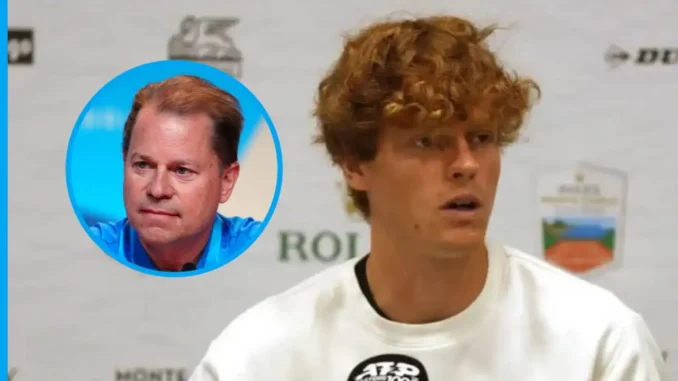
The director general of the World Anti-Doping Agency (WADA) has revealed the key reason why the organisation has appealed the initial ruling in Jannik Sinner’s case.
World No 1 Sinner twice tested positive for banned steroid clostebol in March, though successfully appealed against a provisional suspension on both occasions.
The Italian was later found to be of “no fault or negligence” by the International Tennis Integrity Agency (ITIA) after proving he had inadvertently been contaminated.
Sinner argued the substance was in his system after his former physio had used a skin cream containing clostebol on his cut, before massaging the world No 1.
Despite a mixed reaction publicly following the revelation of the case in August, it appeared that the matter was close for the Italian – who won the US Open just weeks after the saga emerged.
However, it was announced in October that WADA would appeal to the Court of Arbitration for Sport (CAS) against the initial ruling in Sinner’s case.
A decision will not be announced until 2025, though Sinner could face up to a two-year suspension should CAS rule in WADA’s favour.
Speaking yesterday to AFP, WADA director general Olivier Niggli confirmed that the body did not want to prove that Sinner was at “fault” – but was contesting the level of responsibility he should have taken.
“It was considered in the decision that there was no fault on the part of Sinner,” said Niggli.
“We do not dispute the fact that it could have been a contamination. But we believe that the application of the rules does not correspond to the case law.”
Doping in tennis has been a hot topic of discussion throughout 2024.
The year started with Simona Halep’s four-year suspension being sensationally reduced to nine months, with Sinner’s case later followed by news of Iga Swiatek receiving a one-month ban.
Much like Sinner, Swiatek – who also argued contamination after testing positive for TMZ – was able to fight her case to the ITIA behind closed doors before a ruling was publicly announced.
This has been the subject of controversy, though Niggli revealed that the “first concern” should always be protecting an athlete.
He added: “Personally, I think that protecting an athlete’s reputation should be our first concern
“We live in a world where social media is what it is and means that a reputation can go up in smoke in a very, very short time.”
Be the first to comment